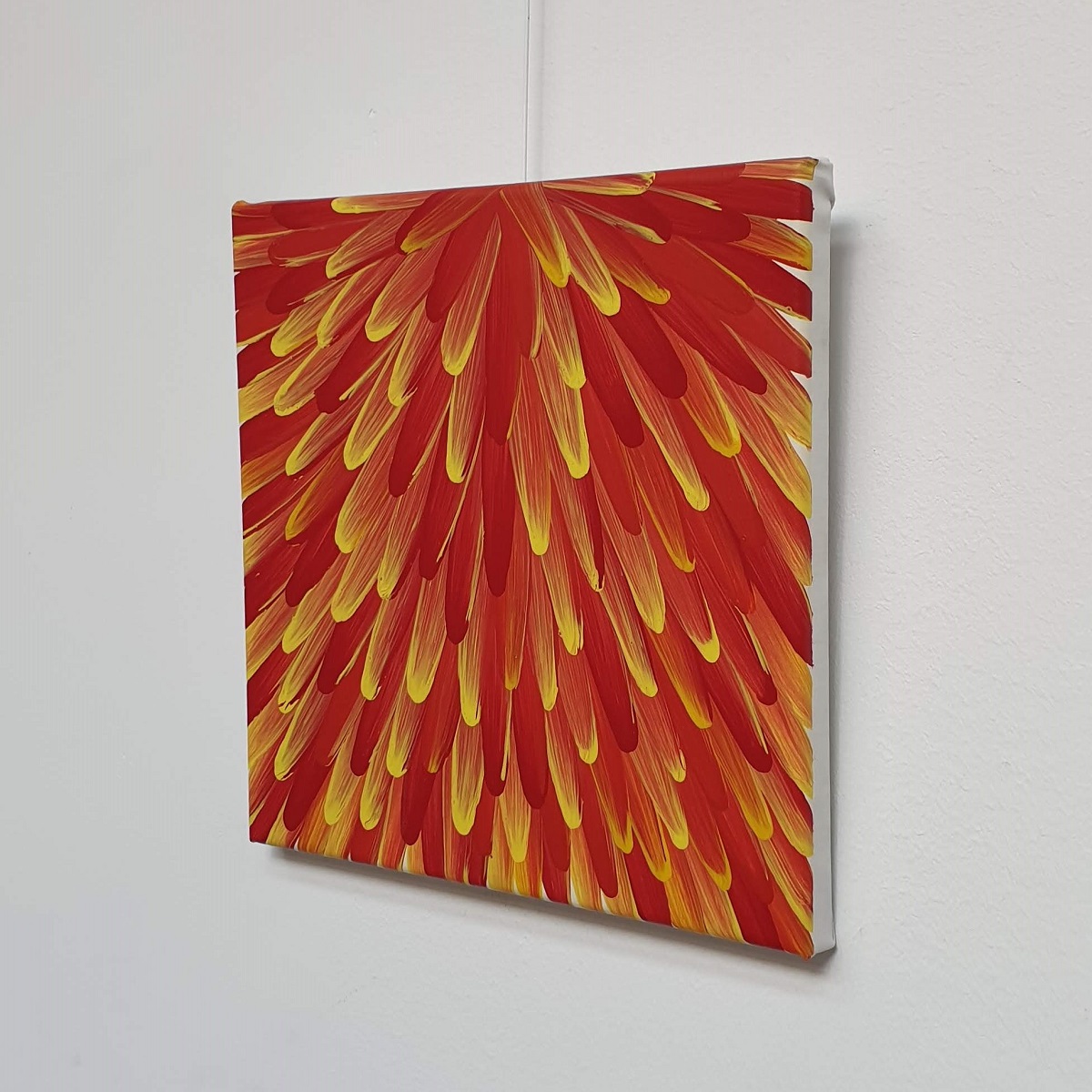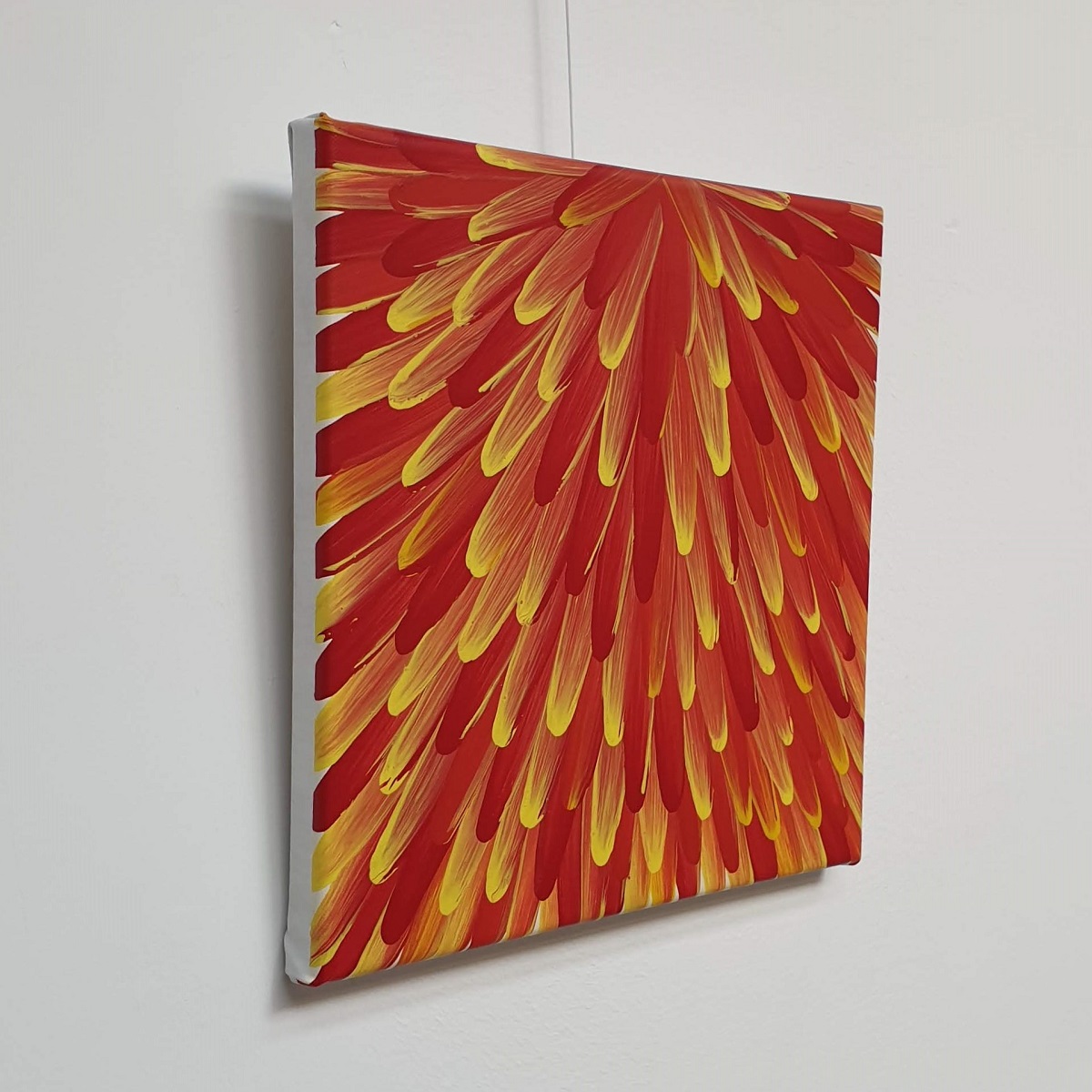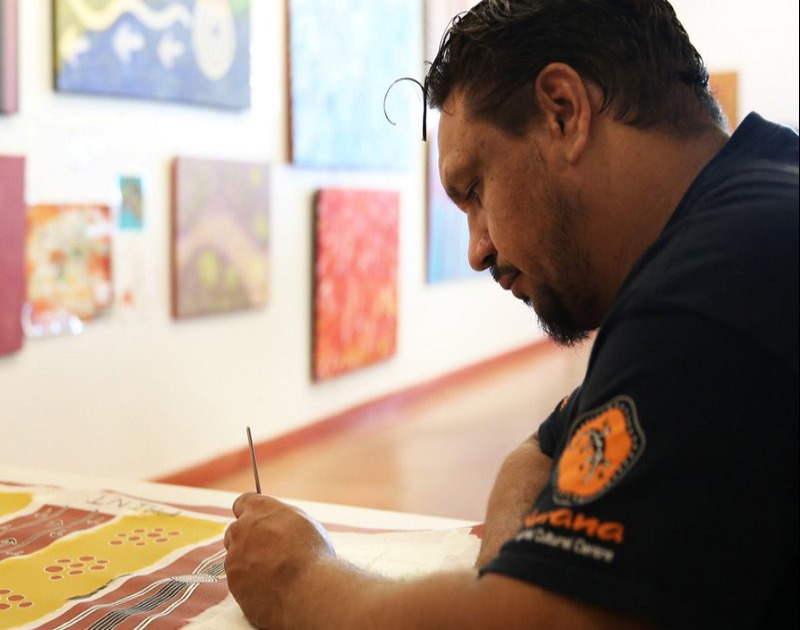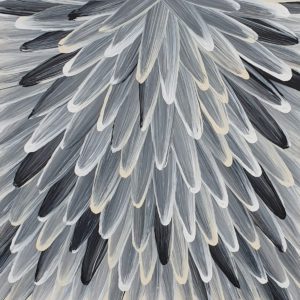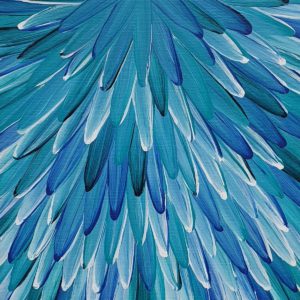Story
During the Jukurrpa (Dreamtime) many Ankerre (Emu) travelled across the Central Australian region from the Western Desert to the East, many of them perished, leaving behind significant sites and stories. During their long journey one of the Ankerre went searching for food, a bush tucker, called Kutjuta (Bush Tomato). The Ankerre came across an old Ahltora (Bush Turkey) in Ngarleyekwerleng grass plains, my Grandfathers country. The Ankerre asked the Ahltora if he had any Kutjuta, the Ahltora replied that he had only dry, tasteless bush tucker. The Ankerre was too tired to travel and so he stayed around, waiting for the Ahltora to wander away.

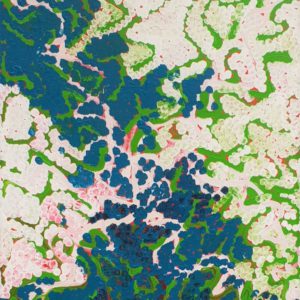 Water Snake
Water Snake


